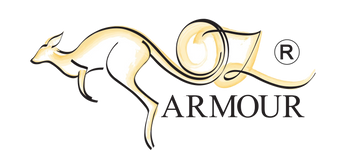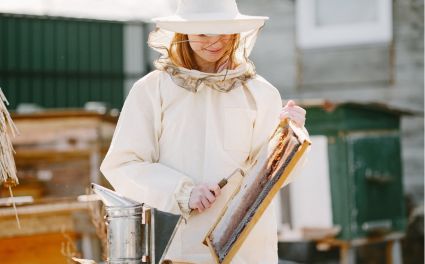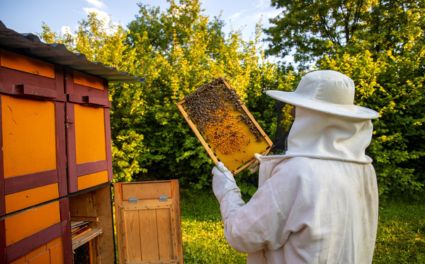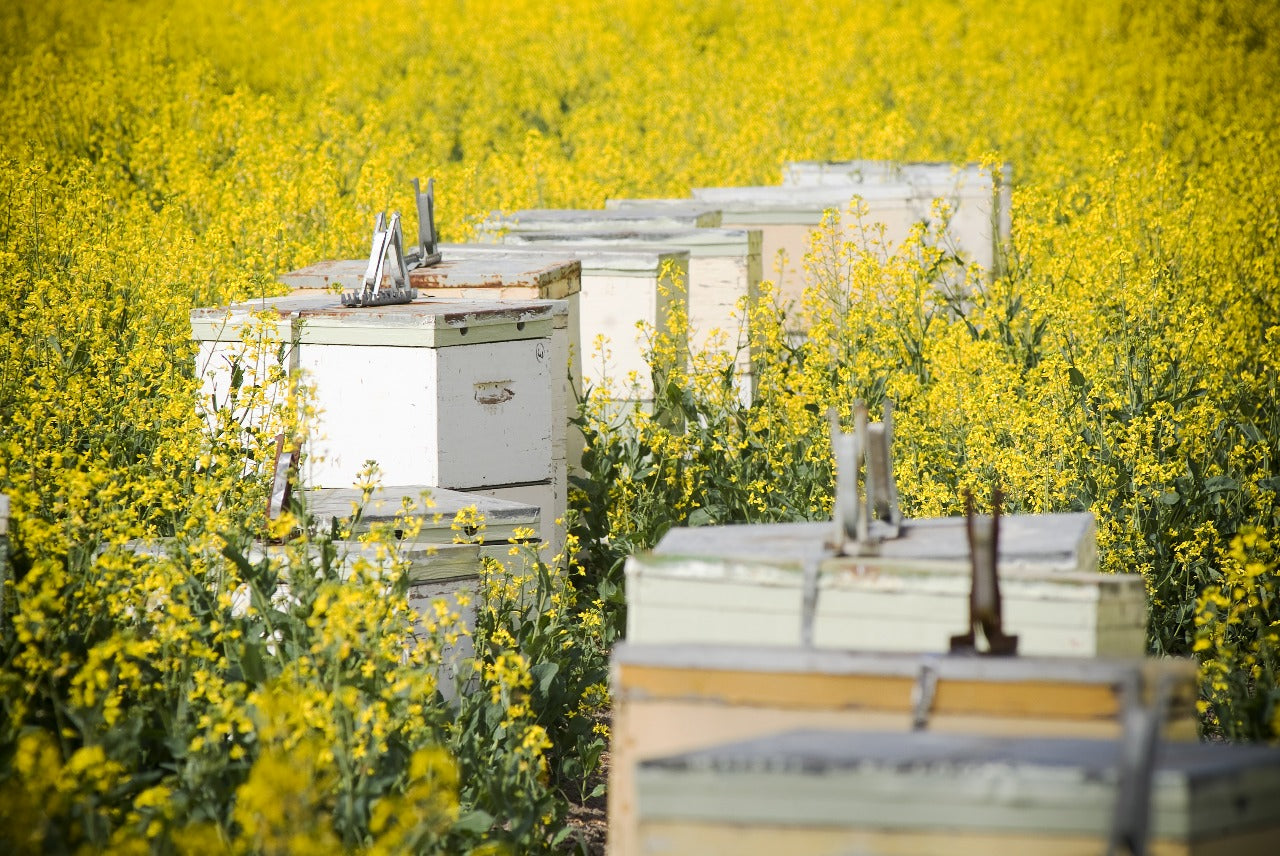Honeybees are vital to pollination and agriculture and critical in sustaining ecosystems and food production. Yet, for honeybee colonies to thrive, they require proper care and nutrition. Feeding your bees goes beyond just making sure their survival during tough times; it fosters a healthy, productive hive that can withstand environmental challenges.
When natural food sources fall short due to weather, habitat loss, or seasonal changes, beekeepers must step in to provide the necessary sustenance. This guide delves into honeybee nutrition basics, feeding methods, and organic strategies that sustainably promote hive health and productivity.
Plus, we'll highlight the key benefits of feeding your bee colonies to show why it’s such an essential practice.
Why Nutrition Is Crucial For Honeybees?
Honeybee's health depends heavily on the quality and availability of their food. Their diet primarily consists of two essential resources:
-
Nectar:
The primary energy source for bees is nectar, a sweet liquid that blooming plants produce. They convert nectar into honey, which serves as their long-term energy reserve.
-
Pollen:
Packed with proteins, fats, and micronutrients, pollen is essential for the growth and development of young bees. It supports overall colony health and contributes to the strength of the hive.
Nevertheless, factors such as droughts, urbanization, and habitat loss can lead to a scarcity of flowers, leaving bees with insufficient resources. During these periods, colonies are at risk of malnutrition, reduced brood production, and increased vulnerability to pests and diseases.
Pro Tip: While working near hives during feeding or inspections, wearing a high-quality 3-layer beekeeping suit and gloves is crucial for protection and ease of movement.
Beekeepers can mitigate these risks by providing supplemental feeding, making sure the colony remains robust and productive.
Smart Ways To Feeding Strategies For Honeybees
Feeding honeybees isn’t a one-size-fits-all process. The sort of feeding strategy depends on the requirements of the hive and the time of year. Here are some effective feeding options:
1. Sugar Syrup: A Reliable Energy Source
Sugar syrup is one of the most popular feeding options for beekeepers. Its preparation varies depending on the season:
- Spring: A 1:1 sugar-to-water ratio encourages brood rearing and prepares the hive for the nectar flow season.
- Autumn: A 2:1 sugar-to-water ratio helps bees make up their winter food reserves.
Pro Tip: Always use plain white sugar. Alternatives like brown sugar or molasses contain additives that can harm bees.
Using a sturdy bee feeder simplifies syrup delivery to the hive, and guarantees minimal disruption to the bees.
2. Pollen Patties: A Protein Boost
When natural pollen is unavailable, pollen patties provide a reliable source of protein, essential for the brood’s growth and development.
- Pre-Made Patties: These are convenient and often include additional vitamins or supplements.
- DIY Patties: Homemade patties allow for control over the ingredients, making sure a natural and additive-free option.
Tip for Success: Always wear protective gear such as beekeeping gloves when placing patties in the hive to avoid stings and maintain hygiene.
3. Winter Feeding: Fondant And Candy Boards
Cold winters can limit bees’ access to their stored honey, increasing the risk of starvation. Fondant and candy boards are excellent options during this time:
- Fondant: A soft, sugar-based paste that bees can consume easily.
Candy Boards: Hardened sugar blocks placed within the hive for easy access.
Both pick-ups make sure that bees have enough energy to make it through the cold season.
Exploring Organic Feeding Methods
Organic feeding practices are becoming increasingly popular among beekeepers who prioritize sustainability and hive health. These methods avoid synthetic chemicals and foster a more natural environment for bees.
Organic Sugar Syrup:
Replacing conventional sugar with certified organic sugar makes sure that bees are not exposed to pesticides or harmful chemicals, particularly important for organic honey producers.
Planting Pollinator-Friendly Gardens:
Encouraging natural foraging is one of the best ways to support honeybee nutrition. Planting a variety of flowers, shrubs, and trees provides a consistent food source throughout the year.
Options like lavender, clover, sunflowers, and wildflowers are excellent choices.
Herbal Additives:
Incorporating essential oils and herbs into bee feed can enhance hive health and offer protection against pests. For example:
- Thyme Oil: Helps combat varroa mites.
- Lemongrass Oil: Attracts bees and stimulates feeding.
- Spearmint Oil: Supports digestion and reduces disease risk.
These natural remedies are an easy yet effective way to boost the hive's resilience.
Timing Is Everything: When To Feed Your Bees?
Knowing when to feed your bees is as crucial as deciding what to feed them. Here’s a seasonal guide to ensure your colonies are well-supported:
- Spring: Provide food early in the season to stimulate growth and brood production.
- Summer Dearth: During times of low nectar flow, supplemental feeding prevents starvation and maintains colony strength.
- Autumn: Feed bees to help them stockpile resources for the colder months ahead.
- Winter: Offer emergency feeding when stored honey runs low or during prolonged cold spells.
Helpful Tip: Tools like hive tools or bee feeders make it easier to assess hive needs and deliver feed with precision.
Tips For Successful Feeding
Following are the amazing tips for successful feeding:
Monitor Hive Conditions:
Regular inspections help you determine if the colony requires supplemental feeding.
Clean Feeding Tools:
Dirty feeders can introduce pathogens, so always keep tools sanitized.
Avoid Overfeeding:
Too much feed can lead to crowding, robbing, or overly aggressive bees.
Localize Your Approach:
Take into account regional flora, climate, and hive size when planning your feeding strategy.
The Perks Of Feeding Bee Colonies
Feeding your honeybee colonies is more than a practical task; it’s an essential part of their health, vitality, and productivity. By supplementing their diet, you address potential challenges and create a supportive environment for them to thrive. Here’s a closer look at the many benefits of providing additional nutrition to your bees:
-
Prevents Starvation:
Bees rely on nectar and pollen from flowers for sustenance, but environmental factors such as drought, habitat loss, or extreme weather can result in food shortages. Supplemental feeding acts as a safety net during these times, guaranteeing that your colony has the energy it needs to survive when natural resources are scarce.
-
Boosts Colony Growth:
A well-fed colony is a growing colony. Proper nutrition supports the production of broods, which is essential for maintaining a healthy and robust hive. Feeding your bees makes sure that they have the resources needed to expand their population, especially during critical growth periods like spring.
-
Enhances Pollination Efficiency:
Healthy bees are active bees. When colonies are well-nourished, they are more effective pollinators, spending more time foraging and visiting flowers. This benefits not only your hives but also the surrounding environment, including crops and wild plants that depend on pollination.
-
Improves Honey Production:
Feeding your bees can directly impact honey production. By supplementing their diet, you reduce the time and energy they spend searching for food, allowing them to focus more on making honey. This is particularly beneficial during times of low nectar flow, as it helps sustain your colony's productivity.
-
Strengthens Immunity:
Nutrition plays a vital role in the immune system of bees. Well-fed bees are better equipped to resist common pests and diseases, such as varroa mites or Nosema. Feeding can also be enhanced with natural additives like essential oils, which further boost the bees’ resilience and overall health.
-
Supports Overwintering:
Winter is one of the most challenging seasons for honeybee colonies. Feeding them in late autumn and during winter makes sure they have adequate reserves to survive the cold months. Supplemental feeding during this time not only prevents starvation but also helps the bees conserve their energy, enabling them to emerge strong and ready to thrive in spring.
-
Encourages Sustainable Practices:
Feeding doesn’t have to stop at providing sugar syrup or pollen patties. Organic feeding practices, such as planting diverse, pollinator-friendly gardens, create a more sustainable environment for your bees. By reducing their reliance on synthetic additives and offering natural forage, you contribute to the health of the ecosystem as a whole.

Protect and Thrive with OZarmour's Beekeeping Suits and Premium Jackets
At OZarmour, we understand the importance of comfort, durability, and protection when caring for your honeybee colonies. Our "Best Beekeeping Suits and Premium Beekeeping Jackets" collection is designed to ensure beekeepers can focus on hive health and productivity with confidence. Made from high-quality materials, these suits and jackets provide superior ventilation, sting-proof protection, and ease of movement, making them essential for safe hive inspections and feeding tasks. Whether you're placing pollen patties, refilling feeders, or managing hive conditions, our gear keeps you protected while fostering a thriving beekeeping environment. Trust OZarmour for reliable, professional-grade beekeeping apparel.
A Path To Healthier Hives!
Feeding your honeybee colonies is more than just making sure of their survival, it’s about fostering a resilient, thriving ecosystem. By understanding their nutritional needs and using effective, sustainable feeding methods, you can create an environment where your bees are strong, healthy, and ready to pollinate.
Moreover, for feeding, proper protective gear like beekeeping suits, essential tools like beekeeping gloves, and hive management tools are vital for safe and efficient hive care.
Level up! Check out our massive range of feeding solutions and organic supplements designed to support the health of your honeybee colonies.
Conclusion
Feeding honeybee colonies is essential for their survival, growth, and productivity. By understanding their nutritional needs and providing supplemental feeding during critical times, you ensure your bees remain healthy and resilient. Incorporating strategies like sugar syrup, pollen patties, and organic feeding methods not only supports hive health but also enhances pollination, honey production, and overall colony strength. Coupled with sustainable practices, such as planting pollinator-friendly gardens, you contribute to a thriving ecosystem. Remember, protective gear like OZarmour's beekeeping suits and jackets ensures safe and efficient hive management. Support your bees with the right care and tools for optimal hive success.












